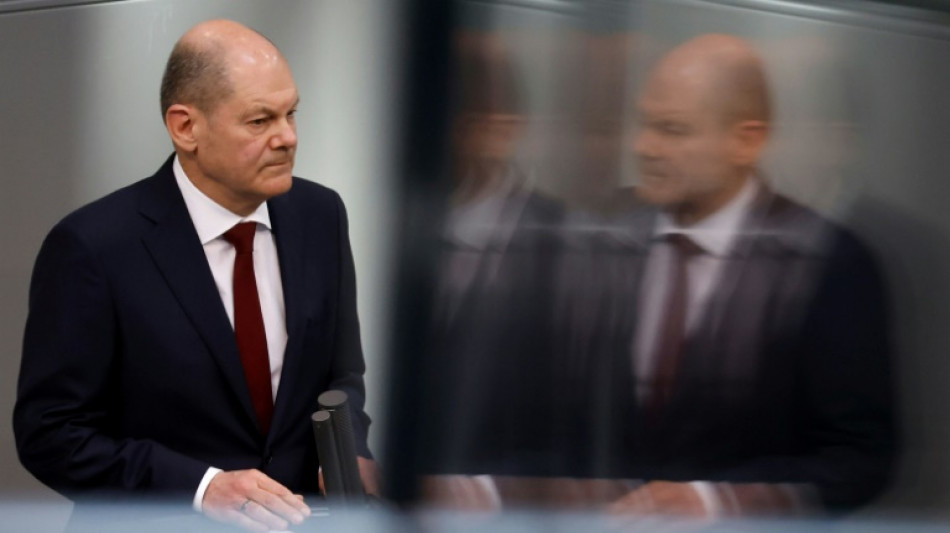
-
 Sequins and snow: Eva Adamczykova makes Olympic return
Sequins and snow: Eva Adamczykova makes Olympic return
-
Vonn set for Olympic medal bid after successful downhill training

-
 Shepherd takes hat-trick as West Indies beat Scotland in T20 World Cup
Shepherd takes hat-trick as West Indies beat Scotland in T20 World Cup
-
Sausages will sell after thrill-seeker Von Allmen wins Olympic downhill

-
 Swiss racer Von Allmen wins first gold of Winter Olympics
Swiss racer Von Allmen wins first gold of Winter Olympics
-
'Wake up': Mum sparks comeback after scare for freeski star Gu

-
 Von Allmen wins men's Olympic downhill gold, first of Games
Von Allmen wins men's Olympic downhill gold, first of Games
-
First medals up for grabs at Winter Olympics

-
 Afghanistan captain Khan harbours dream of playing in Kabul
Afghanistan captain Khan harbours dream of playing in Kabul
-
Lindsey Vonn completes second Winter Olympics downhill training run

-
 Freeski star Gu survives major scare in Olympic slopestyle
Freeski star Gu survives major scare in Olympic slopestyle
-
Iran FM looks to more nuclear talks, but warns US

-
 Hetmyer's six-hitting steers West Indies to 182-5 against Scotland
Hetmyer's six-hitting steers West Indies to 182-5 against Scotland
-
After boos for Vance, IOC says it hopes for 'fair play'

-
 Thousands gather as Pakistan buries victims of mosque suicide attack
Thousands gather as Pakistan buries victims of mosque suicide attack
-
Lindsey Vonn completes second downhill training session

-
 US pressing Ukraine and Russia to end war by June, Zelensky says
US pressing Ukraine and Russia to end war by June, Zelensky says
-
Faheem blitz sees Pakistan avoid Netherlands shock at T20 World Cup

-
 Takaichi talks tough on immigration on eve of vote
Takaichi talks tough on immigration on eve of vote
-
England's Salt passed fit for T20 World Cup opener

-
 Spain, Portugal brace for fresh storm after flood deaths
Spain, Portugal brace for fresh storm after flood deaths
-
Pakistan bowl out Netherlands for 147 in T20 World Cup opener

-
 Pushed to margins, women vanish from Bangladesh's political arena
Pushed to margins, women vanish from Bangladesh's political arena
-
Crypto firm accidentally sends $40 bn in bitcoin to users

-
 Pistons end Knicks' NBA winning streak, Celtics edge Heat
Pistons end Knicks' NBA winning streak, Celtics edge Heat
-
Funerals for victims of suicide blast at Islamabad mosque that killed at least 31

-
 A tale of two villages: Cambodians lament Thailand's border gains
A tale of two villages: Cambodians lament Thailand's border gains
-
Police identify suspect in disappearance of Australian boy

-
 Cuba adopts urgent measures to address energy crisis: minister
Cuba adopts urgent measures to address energy crisis: minister
-
Not-so-American football: the Super Bowl's overseas stars

-
 Trump says US talks with Iran 'very good,' more negotiations expected
Trump says US talks with Iran 'very good,' more negotiations expected
-
Trump administration re-approves twice-banned pesticide

-
 Hisatsune leads Matsuyama at Phoenix Open as Scheffler makes cut
Hisatsune leads Matsuyama at Phoenix Open as Scheffler makes cut
-
Beyond the QBs: 5 Super Bowl players to watch

-
 Grass v artificial turf: Super Bowl players speak out
Grass v artificial turf: Super Bowl players speak out
-
Police warn Sydney protesters ahead of Israeli president's visit

-
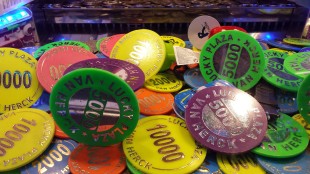 Simi Khanna Launches Simi Beauty SK: A Natural Skincare Line Blending Luxury, Wellness, and Purpose
Simi Khanna Launches Simi Beauty SK: A Natural Skincare Line Blending Luxury, Wellness, and Purpose
-
Best Gold IRA Companies February 2026 Announced (Top Gold-backed IRA Companies Revealed)

-
 Bolivia wants closer US ties, without alienating China: minister
Bolivia wants closer US ties, without alienating China: minister
-
Ex-MLB outfielder Puig guilty in federal sports betting case

-
 Milan-Cortina Winter Olympics open with dazzling ceremony
Milan-Cortina Winter Olympics open with dazzling ceremony
-
China overturns death sentence for Canadian in drug case

-
 Trump reinstates commercial fishing in protected Atlantic waters
Trump reinstates commercial fishing in protected Atlantic waters
-
Man Utd can't rush manager choice: Carrick

-
 Leeds boost survival bid with win over relegation rivals Forest
Leeds boost survival bid with win over relegation rivals Forest
-
Stars, Clydesdales and an AI beef jostle for Super Bowl ad glory

-
 Dow surges above 50,000 for first time as US stocks regain mojo
Dow surges above 50,000 for first time as US stocks regain mojo
-
Freeski star Gu says injuries hit confidence as she targets Olympic treble
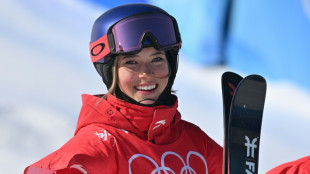
-
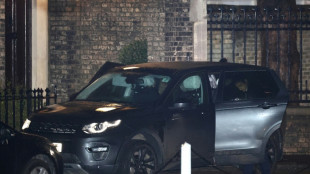 UK police search properties in Mandelson probe
UK police search properties in Mandelson probe
-
Bompastor extends contract as Chelsea Women's boss despite slump
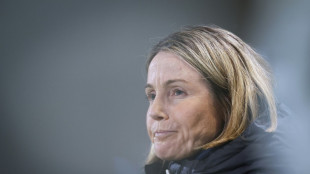

Boring to 'historic': the awakening of Germany's Olaf Scholz
Often described as predictable and "robotic", Chancellor Olaf Scholz has become emboldened since Russia's invasion of Ukraine, smashing policy taboos to steer Germany into "a new era" that could reshape its role on the world stage.
Just a few weeks ago, German media were openly asking "where is Scholz?", slamming the Social Democrat's perceived lack of leadership on pressing issues like the coronavirus pandemic and worsening Ukraine crisis.
But Moscow's attack on Ukraine last week has jolted the chancellor into action, culminating in what commentators have called a "historic" speech on Sunday.
Scholz, who has only been in office three months, spoke with uncharacteristic clarity when he unveiled a slew of defence and foreign policy shifts that promise to upend Germany's decades-long reluctance to raising its military profile.
"The Ukraine crisis has changed the chancellor. And now he's changing our country," the top-selling Bild daily wrote.
Addressing an emergency parliamentary session, Scholz told the nation that "we are now in a new era".
In a country haunted by post-war guilt, Scholz assured Germans that they were "on the right side of history" as Ukraine's allies.
Among the headline-grabbing announcements was a pledge to earmark 100 billion euros ($113 billion) this year alone to modernise the chronically underfunded the army, called the Bundeswehr.
Scholz also said that Europe's biggest economy would commit to spending more than two percent of Germany's gross domestic product on defence annually, surpassing even NATO's target.
His coalition government had earlier already reversed a ban on sending weapons to Ukraine, and halted the Nord Stream 2 gas pipeline between Germany and Russia.
The move came as a relief to the United States and European partners, who had begun to question Berlin's resolve in standing up to Moscow.
Some observers have speculated that it was perhaps no coincidence that Russian President Vladimir Putin timed his invasion after the departure of veteran chancellor Angela Merkel.
He had built a working relationship with her based on mutual respect and a shared history of living in ex-communist East Germany.
But if he sensed weakness in Berlin while the new government found its footing, his radical actions appear to have galvanised not just Scholz, but the nation.
More than 100,000 people took to the streets in Berlin at the weekend to protest against Russia's invasion.
- Surprises -
Der Spiegel weekly, which once described Scholz as "the embodiment of boredom in politics", praised the chancellor for displaying "the leadership that had been missing in recent weeks".
"Scholz, who is often rhetorically vague, has left no doubt about his determination," Spiegel wrote.
But Scholz has surprised observers before.
As Merkel's finance minister, he suspended Germany's cherished debt brake to unleash a "bazooka" in pandemic aid, and crossed a previous red line by backing a European Union recovery package partially funded by joint borrowing.
He also came from behind to win last year's general election, staying true to his boring-but-reliable persona while avoiding the gaffes that brought down rivals from the Green party and from Merkel's conservative camp.
He now heads Germany's first-ever three-way coalition, consisting of the Social Democratic Party (SPD), the Greens and the pro-business FDP.
Scholz's policy reversals mark a turning point for his centre-left SPD, which has historically championed close ties with Russia.
- 'Naive' -
Russia's war-mongering is a "rude awakening" that has forced the SPD "to throw decades-old convictions overboard", the conservative Frankfurter Allgemeine daily wrote.
Scholz has also distanced himself from former SPD chancellor Gerhard Schroeder, whose close friendship with Putin and Russian business dealings have become an embarrassment to the party.
At the same time, Scholz's new path marks a sharp break with the commerce-driven pragmatism of the Merkel years in dealing with Russia.
Merkel's emphasis on trade and dialogue with an increasingly belligerent Moscow during her four terms in office will now be seen in a different light, political scientist Ursula Muench told AFP.
"We will no longer praise her negotiating skills, but ask whether she and her government were too naive about Putin," she said.
L.Durand--AMWN


